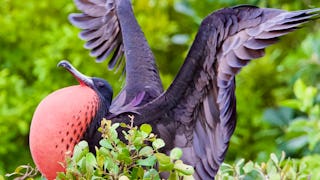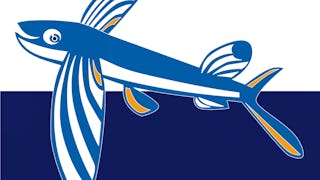Learn how aeroecology, a discipline that studies airborne life forms, has been revolutionised with the use of radar with this unique course. This course is designed to help scientists, researchers as well as ecology enthusiasts to develop skills in using radar to explore biodiversity.

Profitez d'une croissance illimitée avec un an de Coursera Plus pour 199 $ (régulièrement 399 $). Économisez maintenant.

Expérience recommandée
Ce que vous apprendrez
Learn the principles of radar and how radar data can tell us about the diversity and abundance of organisms.
Explore how to apply radar to provide novel approaches to the study of complex questions in biodiversity research.
Compétences que vous acquerrez
- Catégorie : Environmental Monitoring
- Catégorie : Data Literacy
- Catégorie : Research
- Catégorie : Physics
- Catégorie : Data Visualization
- Catégorie : Environmental Science
- Catégorie : Biology
- Catégorie : Environment
- Catégorie : Geospatial Information and Technology
- Catégorie : Environmental Regulations
- Catégorie : Spatial Data Analysis
- Catégorie : Scientific Visualization
- Catégorie : Taxonomy
Détails à connaître

Ajouter à votre profil LinkedIn
Découvrez comment les employés des entreprises prestigieuses maîtrisent des compétences recherchées

Il y a 2 modules dans ce cours
This first week of content will give you a basic understanding of radar science and biodiversity science. At the end of the week, we will bring the two research areas together and consider how they can inform one another. In the second week, we will explore the more technical aspects of radar aeroecology. We will look at the important and neglected questions that radar can address in biodiversity science, and how radar data can complement other sources of information about the natural world. You will end week 2 with an opportunity to generate your own research idea that builds on your new understanding.
Inclus
8 vidéos11 lectures3 devoirs5 sujets de discussion
Welcome to week two of this course on Aeroecology: exploring biodiversity with radar. In week one of the course, you were introduced to the fundamentals of radar science and biodiversity research, then we brought the two together to explore how the two disciplines can work together to generate biological information from radar data. Week two will develop that initial overview to examine some of the key gaps in our understanding of ecosystems. We will start by looking at how we measure abundance in biodiversity research, and why this is important in an ecological context. We will then move on to look at the importance of measuring diversity, and the extent to which radar is able to do so. I will illustrate these abundance and diversity topics with a range of case studies to show you how radar is currently being applied in some areas. In the final part of the course, we will take a step back and survey the field for future opportunities. The optional assessment involves you as learners becoming practitioners yourselves and exploring these opportunities to find a research area that might be of interest to you.
Inclus
7 vidéos9 lectures3 devoirs1 évaluation par les pairs1 sujet de discussion
Instructeur

Offert par
En savoir plus sur Environmental Science and Sustainability
 Statut : Essai gratuit
Statut : Essai gratuitRice University
 Statut : Gratuit
Statut : GratuitUniversity of Cape Town
 Statut : Prévisualisation
Statut : PrévisualisationDuke University
 Statut : Essai gratuit
Statut : Essai gratuitRice University
Pour quelles raisons les étudiants sur Coursera nous choisissent-ils pour leur carrière ?




Foire Aux Questions
To access the course materials, assignments and to earn a Certificate, you will need to purchase the Certificate experience when you enroll in a course. You can try a Free Trial instead, or apply for Financial Aid. The course may offer 'Full Course, No Certificate' instead. This option lets you see all course materials, submit required assessments, and get a final grade. This also means that you will not be able to purchase a Certificate experience.
When you purchase a Certificate you get access to all course materials, including graded assignments. Upon completing the course, your electronic Certificate will be added to your Accomplishments page - from there, you can print your Certificate or add it to your LinkedIn profile.
Yes. In select learning programs, you can apply for financial aid or a scholarship if you can’t afford the enrollment fee. If fin aid or scholarship is available for your learning program selection, you’ll find a link to apply on the description page.
Plus de questions
Aide financière disponible,
¹ Certains travaux de ce cours sont notés par l'IA. Pour ces travaux, vos Données internes seront utilisées conformément à Notification de confidentialité de Coursera.





